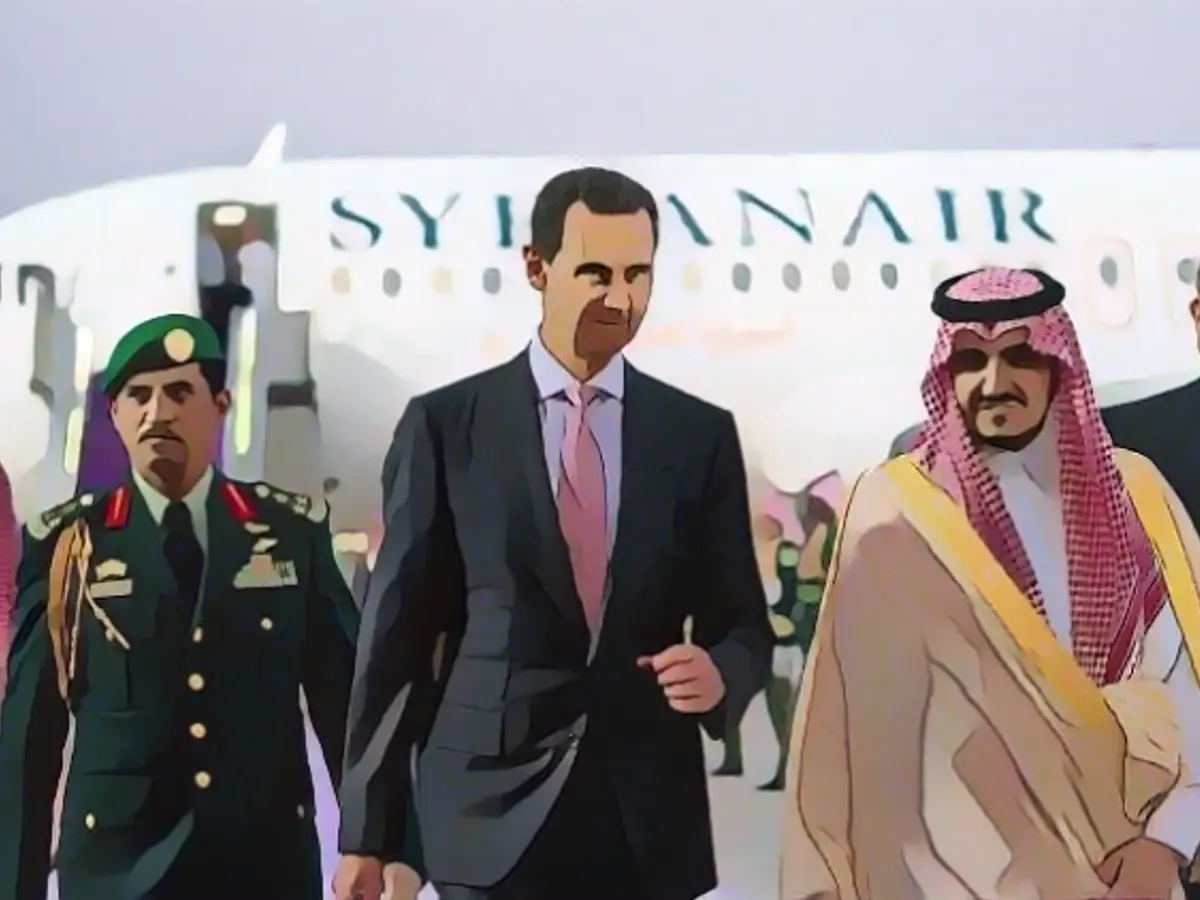What role does Syria play in the current Middle East war?
Syria borders directly on Israel. There have recently been skirmishes between the two countries. The new episode of "Wirtschaft Welt & Weit" looks at the Syrian parties to the conflict, their motives and the current situation in a country that has been at war for around twelve years.
Since 2011, the Syrian population has been suffering from the state of war in their country. What began as a protest against the Assad regime ended in a war in which more and more parties to the conflict played a role. In Syria, it was and is about the defense of human rights, religion, geopolitics and the economy. Today, more than twelve years after the Arab Spring, when millions of people took to the streets against oppression and for more freedom, Bashar al-Assad is still in charge in Syria.
However, the balance of power has changed. The Iranian-backed Shiite Hezbollah militia, for example, is no longer controlled by Syria as it used to be, explains Middle East expert Carsten Wieland in the podcast "Wirtschaft Welt & Weit". Hezbollah and Iran now have Assad "more or less in their hands", says Wieland, who was an advisor to several UN special representatives for Syria for many years. "Now the Iranian militias are right up to the Golan. And that is a threat to Israel," says Wieland in the new podcast episode.
Experts fear that the war between Israel and Hamas could spread to the entire Middle East. Regine Schwab, Syria expert at the Peace Research Institute Frankfurt (PRIF), also sees the danger of escalation. There have long been attacks and counter-attacks - not only from Israel, but also from the USA, which currently has 900 soldiers stationed in Syria. The United States has flown airstrikes against pro-Iranian militias. If there are American casualties, Regine Schwab believes this could quickly escalate the situation.
How powerful is the Assad family?
What role does Syria currently play in the Middle East? How powerful is the Assad family? Even though the Assad regime's policies still meet with great international disapproval, Syria has been back in the ranks of the Arab League for six months now. What influence does this development have on Syria? Will the country fulfill the Arab League's conditions? This and more is the subject of "Wirtschaft Welt & Weit". In the new podcast episode, host Mary Abdelaziz-Ditzow takes a close look at the situation in Syria with Carsten Wieland and Regine Schwab: from the different factions in the civil war to the role of Russia and the United States and economic factors.
Both guests know the Arab world, and Syria in particular, very well and therefore offer many insights: Carsten Wieland has actively helped to mediate in the civil war as an advisor to several UN Special Representatives for Syria. He is a diplomat, author, consultant and fellow at the Geneva Center for Security Policy (GCSP) and the Peace Research Institute Oslo (PRIO). Regine Schwab has detailed knowledge of the many opposition groups in the Syrian civil war. Her dissertation on the complex power structure was awarded the Christiane Rajewsky Prize of the Association for Peace and Conflict Research in 2022.
- The Middle East conflict involving Israel and Syria has seen recent skirmishes, with experts like Carsten Wieland stating that the Iranian-backed Hezbollah militia now has significant influence over Syrian President Bashar al-Assad, posing a threat to Israel due to their proximity to the Golan.
- Regine Schwab, a Syria expert at the Peace Research Institute Frankfurt, shares concerns about the potential escalation of conflicts, citing the history of attacks and counter-attacks between various parties, including Israel and the USA, which currently have troops stationed in Syria.
- The United Nations has played a role in Syrian affairs, with several UN special representatives advising on mediating the conflict, such as Carsten Wieland, who has shared his expertise on the situation in Syria on the podcast "Wirtschaft Welt & Weit."
Source: www.ntv.de








